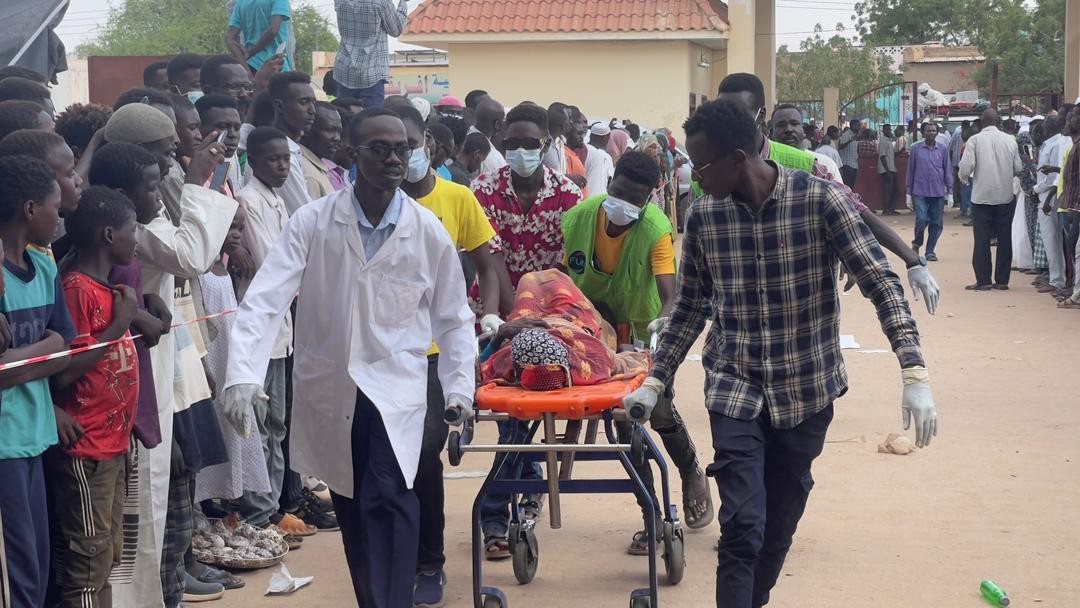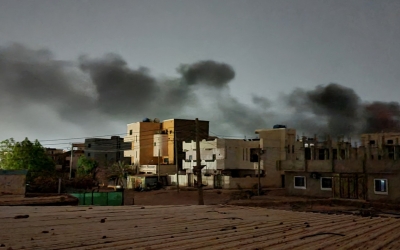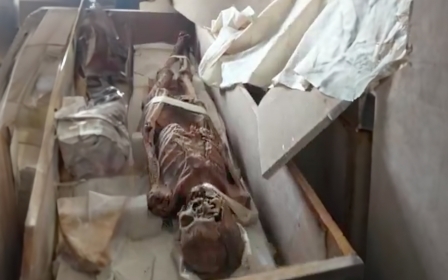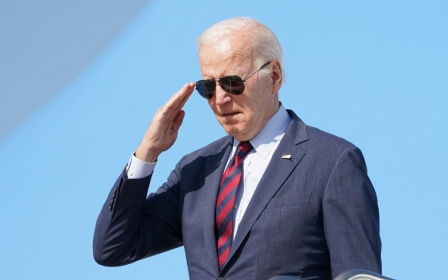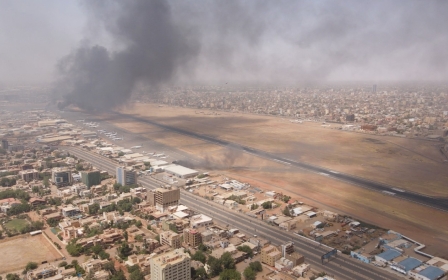Sudan: Dozens killed as RSF attacks North Darfur's Kutum
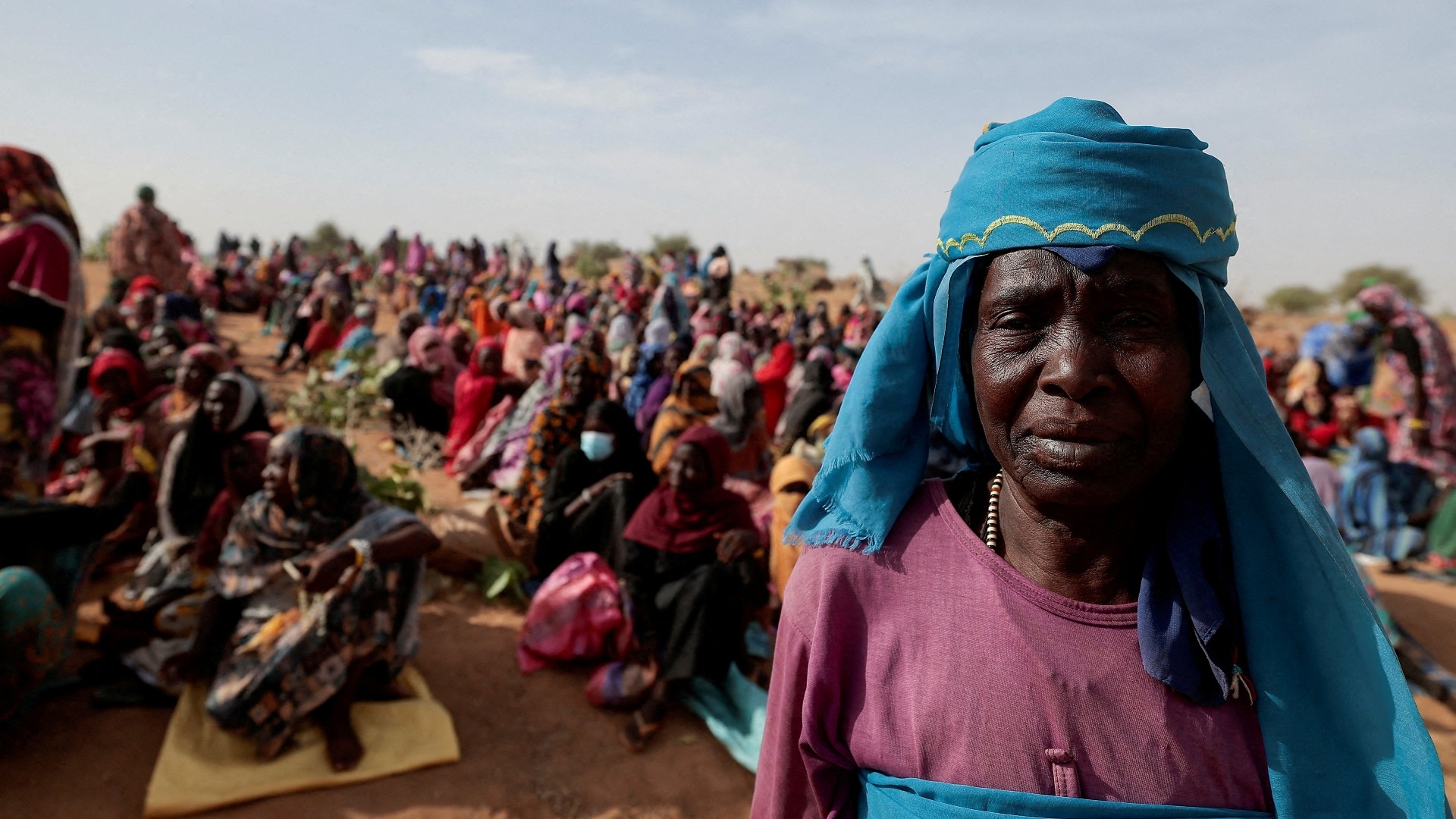
A Rapid Support Forces (RSF) paramilitary attack on the North Darfur town of Kutum in western Sudan on Sunday has killed at least 40 civilians and wounded many more, according to a local lawyers' association and eyewitnesses.
During the offensive, the RSF took control of the Sudanese army’s 22nd Brigade garrison, later releasing a video showing its fighters walking through the base, talking to captured army soldiers, and inspecting its offices.
It is not known how many soldiers died in the operation.
Two eyewitnesses told Middle East Eye that the RSF and “non-uniformed Arab militias” also attacked the nearby Kassab camp, which houses people internally displaced during the Darfur conflict almost 20 years ago.
According to Darfur activist Ahmed al-Kinani, a 65-year-old woman died after the RSF and allied fighters burned her house in Kutum's Kampot Kam district to the ground.
New MEE newsletter: Jerusalem Dispatch
Sign up to get the latest insights and analysis on Israel-Palestine, alongside Turkey Unpacked and other MEE newsletters
Videos and photos verified by MEE also showed official buildings burning in Kutum and long queues of wounded civilians outside el-Fasher Hospital.
Although over 100km from Kutum, the hospital at el-Fasher is the nearest major healthcare facility.
On Sunday, the army denied that Kutum had been taken.
The RSF attacked the whole of the town, looting the market and most of the houses around Kassab camp, said the Darfur Bar Association, a group of lawyers that advocates for rights in the region and monitors abuses.
The association said at least 40 people were killed and that human rights activists were among the dead and the missing.
Unaligned military sources in North Darfur told MEE the death toll was over 50 and that two teachers were among the dead.
The lawyers' group added that many residents of Kutum had fled approximately 50kms northeast to Hashaba, a route taken by Sudanese fleeing attacks during the Darfur conflict between 2003 and 2005.
The Darfur Network for Human Rights activist group said it was "deeply concerned about the human rights violations against innocent citizens" in Kutum.
MEE has asked an RSF spokesperson for comment.
A call to arms
The war in Sudan began on 15 April, when tensions over plans to fold the RSF into the regular Sudanese military broke out into open conflict between the paramilitary and armed forces.
Since then, seven barely observed ceasefires mediated by the United States and Saudi Arabia have come and gone.
Last week, following the complete breakdown of peace talks, the US imposed sanctions on two companies connected to the army and two connected to the family of RSF leader Mohamed Hamdan Dagalo, commonly known as Hemeti.
Before ceasefire talks in Saudi Arabia's Jeddah broke down on Thursday, the warring parties were repositioning their forces to prepare for counteroffensives, sources told MEE.
Fighting has previously been mostly confined to the Khartoum metropolitan area and to Darfur, the restive western region that has been repeatedly riven by conflict over the past 20 years.
However, authorities have now declared a state of emergency in Port Sudan following rumours that RSF fighters are present there, and eyewitnesses have reported clashes between the two sides in el-Obeid, the capital of North Kordofan state in central Sudan.
The RSF was formed out of Arab militias known as the Janjaweed, which the government of former president Omar al-Bashir used against rebel groups in Darfur.
Suliman Arcua "Minni" Minnawi, the governor of Darfur, previously led a faction of the Sudanese Liberation Army rebel group, and last week issued a call to arms to all Darfur's citizens, following repeated pressure from the army to join them as part of an anti-Hemeti coalition in Sudan's west.
However, a western military analyst, who preferred to remain anonymous for security reasons, told MEE that factions that previously fought the Sudanese government and Janjaweed do not have the "military assets on the ground and appetite for a fight".
On Sunday, Hemeti said in a Facebook post that he had spoken on the phone to the Saudi foreign minister to discuss Jeddah mediation efforts.
The paramilitary commander's whereabouts are unclear.
The war has displaced over 1.4 million people, according to the UN.
On Friday, local media outlet Radio Dabanga reported that 440 people have died in fighting in Geneina, the capital of West Darfur.
Middle East Eye delivers independent and unrivalled coverage and analysis of the Middle East, North Africa and beyond. To learn more about republishing this content and the associated fees, please fill out this form. More about MEE can be found here.


